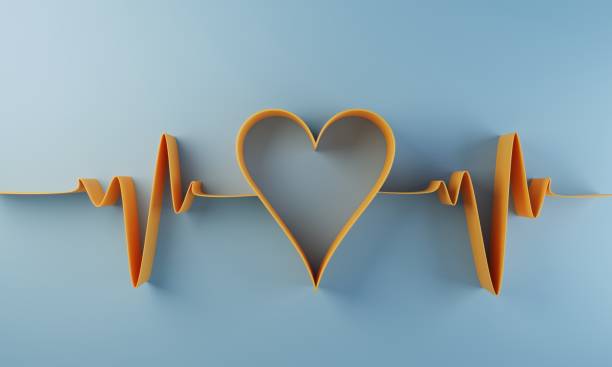
Unlocking the Secrets to Healthy Cholesterol: A Guide for National Cholesterol Education Month
Welcome to National Cholesterol Education Month! September is the perfect time to dive deep into the world of cholesterol, understand its importance, and discover how you can maintain healthy levels. Cholesterol is a critical component of our body, but too much of the wrong kind can lead to serious health issues. In this blog, we'll unlock the secrets to healthy cholesterol and provide you with actionable tips to keep your heart and overall health in top shape.
What is Cholesterol?

Cholesterol is a waxy substance found in your blood that is essential for the production of hormones, vitamin D, and substances that help you digest food. Imagine cholesterol as tiny packages in your blood. These packages are made of fat and protein. Your body uses these packages to build and repair cells and to make hormones. So, cholesterol is like the building material for your body. However, high levels of cholesterol can lead to serious health problems, including heart disease and stroke.
The Role of Cholesterol in Your Body
Cholesterol is produced by your liver and can also be obtained from certain foods. It travels through your bloodstream in three forms: low-density lipoprotein (LDL), high-density lipoprotein (HDL), and triglycerides. LDL cholesterol is often referred to as 'bad' cholesterol because it can build up in the walls of your arteries, causing blockages. HDL cholesterol, on the other hand, is known as 'good' cholesterol because it helps remove LDL cholesterol from your bloodstream, preventing plaque buildup. Your body makes triglycerides with the calories it doesn’t need to use right away. The substance is stored in your cells until your body releases them for energy between meals. High levels of triglycerides contribute to the hardening or thickening of your artery walls as well as pancreatitis.
The Good and the Bad: LDL vs. HDL Cholesterol

Cholesterol travels through your bloodstream attached to lipoproteins. There are two types of cholesterol: LDL and HDL. LDL stands for "Low-Density Lipoprotein." Often referred to as the "bad" cholesterol, think of LDL as the "lousy" type because having too much of it can be bad for your heart. It's like having too much building material scattered around; it can clog up your arteries.
On the other hand, HDL stands for "High-Density Lipoprotein." This is known as the "good" cholesterol. HDL is the "healthy" type. It helps clean up excess cholesterol in the blood and takes it back to your liver for recycling or excretion.
What's a Good Cholesterol Number?

Now that we've covered the basics of cholesterol, let's talk numbers. When you get a cholesterol blood test, it provides several key numbers to consider. First, there's LDL cholesterol, which should ideally be low. HDL cholesterol, the "healthy" type, should be higher because it helps protect your heart. But it's not just LDL and HDL to watch out for; triglycerides also play a crucial role. Triglycerides are a type of fat in your blood, and lower levels are better. Ideally, you'd want to keep them below 150 mg/dL. These numbers serve as important markers of your heart health, helping you and your healthcare provider make informed decisions to keep your cholesterol and triglycerides in check for a healthier heart.
It is essential to know your cholesterol levels to assess your risk of developing heart disease. Schedule regular check-ups with your healthcare provider to get your cholesterol levels tested. The American Heart Association recommends the following cholesterol levels:
- Total Cholesterol: Less than 200 mg/dL
- LDL Cholesterol (bad cholesterol): Less than 100 mg/dL
- HDL Cholesterol (good cholesterol): 60 mg/dL or higher
- Triglycerides: Less than 150 mg/dL
What Causes High Cholesterol?
Several things can raise your cholesterol levels:
-
Diet: Eating too much saturated fat and cholesterol in foods like butter, red meat, and cheese can raise your LDL cholesterol.
-
Genetics: Sometimes, high cholesterol runs in families because of our genes.
-
Age and Gender: As we get older, our cholesterol levels may rise, especially for men.
-
Health Conditions: Conditions like diabetes and thyroid problems can affect cholesterol levels.
Why Learn About Cholesterol?
Understanding cholesterol is like knowing how to keep your house in good shape. If you know how to manage your building material (cholesterol) properly, you can prevent problems down the road, like clogged pipes (arteries) that can lead to heart issues.
Conclusion
During National Cholesterol Education Month, take the opportunity to educate yourself and others about the importance of maintaining healthy cholesterol levels. By following a heart-healthy lifestyle, you can unlock the secrets to keeping your cholesterol in check and reducing your risk of heart disease.
In the coming weeks, we'll explore practical tips for keeping your cholesterol levels in check and how supplements like red yeast rice and omega-3s may help.
Your health is your most valuable asset, and knowing how to protect it starts with understanding cholesterol. Stay tuned for more heart-healthy insights throughout National Cholesterol Education Month!

Leave a comment: